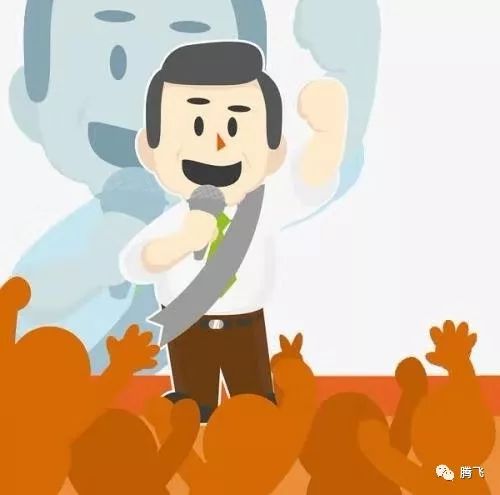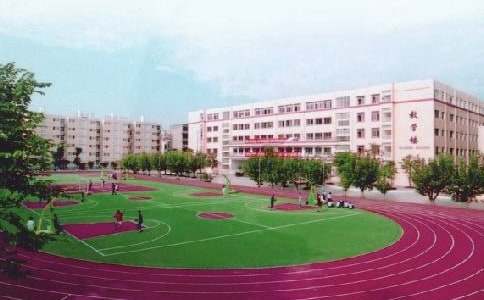人類大腦記憶中心在13歲時(shí)就停止生長(zhǎng)

New neurons stop growing in a key region of the brain's 'memory center' as early as 13 years old, according to a controversial new study.
一項(xiàng)有爭(zhēng)議的新研究顯示,早在人類13歲時(shí),大腦“記憶中心”的關(guān)鍵區(qū)域,新神經(jīng)元就已經(jīng)停止生長(zhǎng)了。
Scientists looking at brain tissue samples found no evidence of new nerve cell growth in the dentate gyryus, a part of the hippocampus vital to memory formation, after the age of 13.
研究腦組織樣本的科學(xué)家沒(méi)有發(fā)現(xiàn)人類在13歲后齒狀回(海馬區(qū)的一個(gè)部分)中有新神經(jīng)細(xì)胞生長(zhǎng)的證據(jù)。海馬區(qū)對(duì)于記憶的形成至關(guān)重要。
The discovery contradicts previous findings suggesting that hippocampal neurons replenish themselves throughout adulthood, as they do in many other mammals.
這一發(fā)現(xiàn)與之前的研究結(jié)果相矛盾,以往的研究顯示,人類大腦海馬區(qū)的神經(jīng)元在整個(gè)成年時(shí)期都會(huì)不斷自我補(bǔ)充,就像它們?cè)谄渌溉閯?dòng)物身上一樣。
New hippocampus neuron development also dwindled over time in macaque monkeys, the scientists found. And hippocampus regeneration was thought to be lacking in big-brained dolphins, porpoises and whales.
科學(xué)家們發(fā)現(xiàn),在獼猴身上,新海馬神經(jīng)元的發(fā)育也逐漸減少。而海豚和鯨魚則被認(rèn)為缺乏海馬體的再生。
Writing in the journal Nature, the authors led by Dr Arturo Alvarez-Buylia, from the University of California at San Francisco, concluded: 'Neurogenesis in the dentate gyrus does not continue, or is extremely rare, in adult humans.'
該研究由加利福尼亞大學(xué)舊金山分校的阿圖羅·阿爾瓦雷斯-拜利亞博士領(lǐng)導(dǎo),發(fā)表在英國(guó)《自然》周刊上。該文章總結(jié)道,“在成年人中,齒狀回中的神經(jīng)元再生不會(huì)繼續(xù),或者非常罕見(jiàn)。”
'The early decline in hippocampal neurogenesis raises questions about how the function of the dentate gyrus differs between humans and other species in which adult hippocampal neurogenesis is preserved.'
“海馬區(qū)神經(jīng)再生的早期衰退提出了人類和其他物種之間齒狀回功能如何不同的問(wèn)題。其他物種在成年期仍可再生海馬神經(jīng)元。”
In an accompanying News And Views commentary, Dr Jason Snyder from the University of British Columbia, Canada, wrote: 'These findings are in stark contrast to the prevailing view that human hippocampal neurogenesis extends throughout adult life.'
加拿大英屬哥倫比亞大學(xué)的杰森·斯奈德博士在一篇相關(guān)的資訊與觀察評(píng)論中寫道:“這些發(fā)現(xiàn)與人們普遍認(rèn)為的人類海馬神經(jīng)發(fā)生貫穿成年期的觀點(diǎn)形成了鮮明的對(duì)比。”
New neurons stop growing in a key region of the brain's 'memory center' as early as 13 years old, according to a controversial new study.
一項(xiàng)有爭(zhēng)議的新研究顯示,早在人類13歲時(shí),大腦“記憶中心”的關(guān)鍵區(qū)域,新神經(jīng)元就已經(jīng)停止生長(zhǎng)了。
Scientists looking at brain tissue samples found no evidence of new nerve cell growth in the dentate gyryus, a part of the hippocampus vital to memory formation, after the age of 13.
研究腦組織樣本的科學(xué)家沒(méi)有發(fā)現(xiàn)人類在13歲后齒狀回(海馬區(qū)的一個(gè)部分)中有新神經(jīng)細(xì)胞生長(zhǎng)的證據(jù)。海馬區(qū)對(duì)于記憶的形成至關(guān)重要。
The discovery contradicts previous findings suggesting that hippocampal neurons replenish themselves throughout adulthood, as they do in many other mammals.
這一發(fā)現(xiàn)與之前的研究結(jié)果相矛盾,以往的研究顯示,人類大腦海馬區(qū)的神經(jīng)元在整個(gè)成年時(shí)期都會(huì)不斷自我補(bǔ)充,就像它們?cè)谄渌溉閯?dòng)物身上一樣。
New hippocampus neuron development also dwindled over time in macaque monkeys, the scientists found. And hippocampus regeneration was thought to be lacking in big-brained dolphins, porpoises and whales.
科學(xué)家們發(fā)現(xiàn),在獼猴身上,新海馬神經(jīng)元的發(fā)育也逐漸減少。而海豚和鯨魚則被認(rèn)為缺乏海馬體的再生。
Writing in the journal Nature, the authors led by Dr Arturo Alvarez-Buylia, from the University of California at San Francisco, concluded: 'Neurogenesis in the dentate gyrus does not continue, or is extremely rare, in adult humans.'
該研究由加利福尼亞大學(xué)舊金山分校的阿圖羅·阿爾瓦雷斯-拜利亞博士領(lǐng)導(dǎo),發(fā)表在英國(guó)《自然》周刊上。該文章總結(jié)道,“在成年人中,齒狀回中的神經(jīng)元再生不會(huì)繼續(xù),或者非常罕見(jiàn)。”
'The early decline in hippocampal neurogenesis raises questions about how the function of the dentate gyrus differs between humans and other species in which adult hippocampal neurogenesis is preserved.'
“海馬區(qū)神經(jīng)再生的早期衰退提出了人類和其他物種之間齒狀回功能如何不同的問(wèn)題。其他物種在成年期仍可再生海馬神經(jīng)元。”
In an accompanying News And Views commentary, Dr Jason Snyder from the University of British Columbia, Canada, wrote: 'These findings are in stark contrast to the prevailing view that human hippocampal neurogenesis extends throughout adult life.'
加拿大英屬哥倫比亞大學(xué)的杰森·斯奈德博士在一篇相關(guān)的資訊與觀察評(píng)論中寫道:“這些發(fā)現(xiàn)與人們普遍認(rèn)為的人類海馬神經(jīng)發(fā)生貫穿成年期的觀點(diǎn)形成了鮮明的對(duì)比。”









